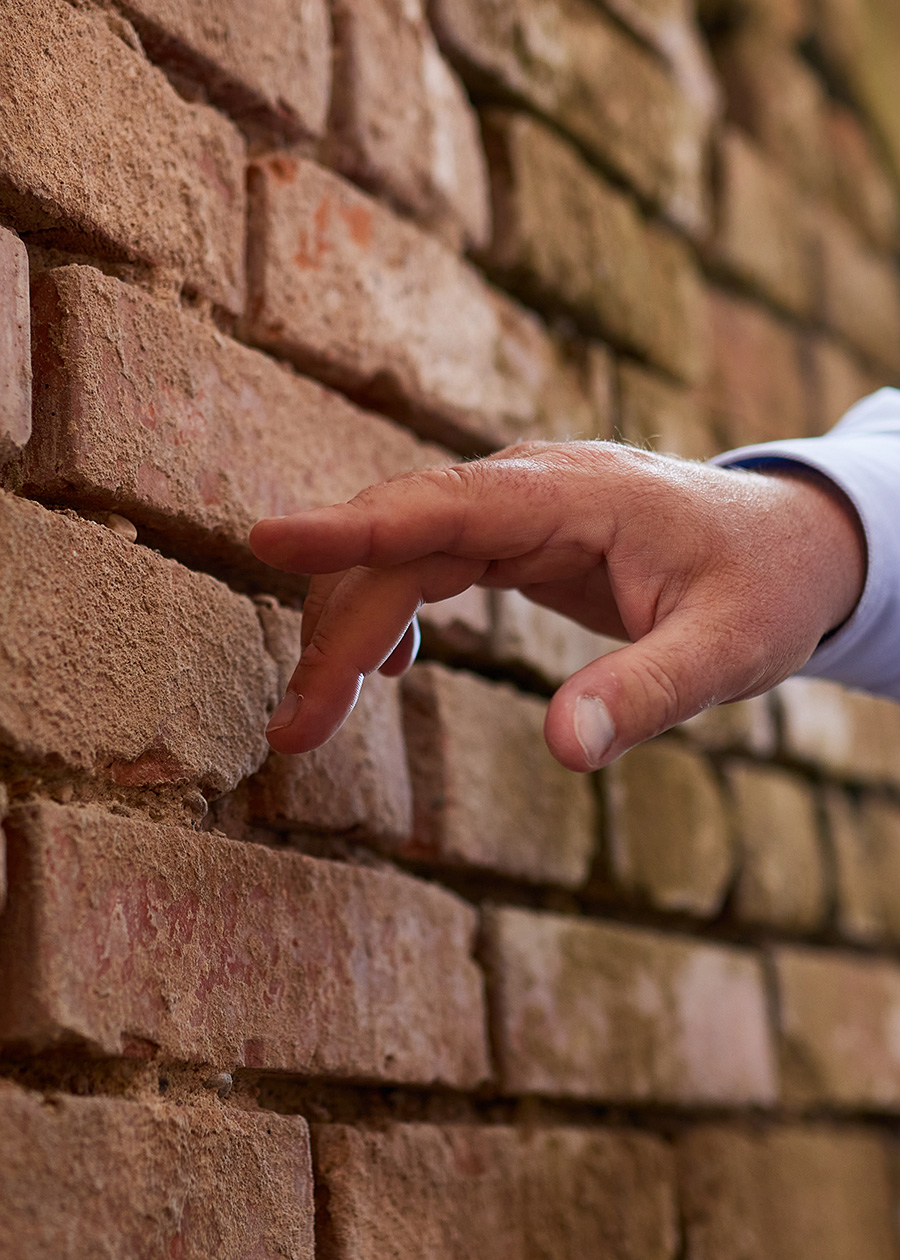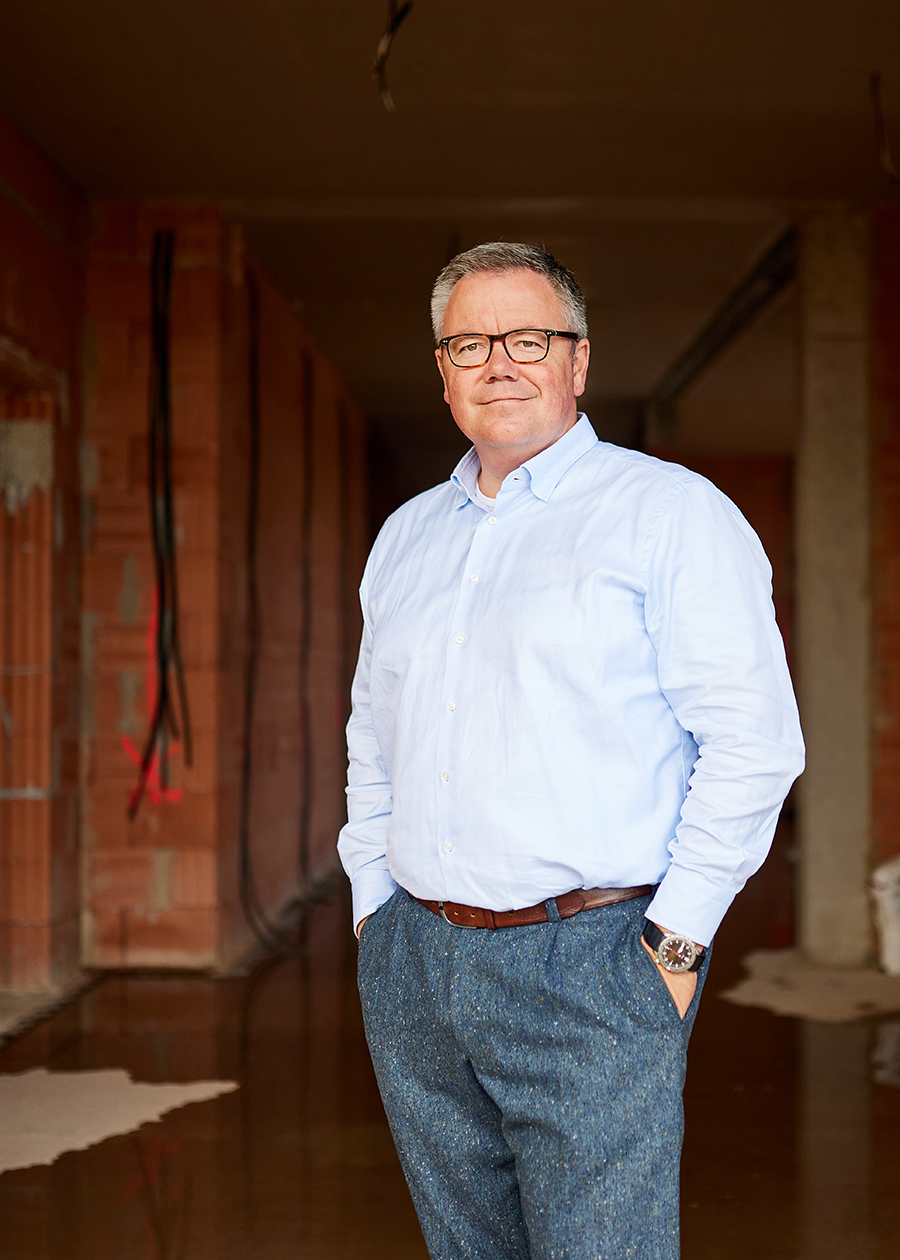Born in Leipzig, Peter Niemann first completed an apprenticeship as a chef after school and, after successfully completing his training, moved on to work in some of Europe's top restaurants. These included the Hirschen restaurant in Sulzburg, Stucki Basel, the Obauer brothers in Werfen, the Bon Loc restaurant in Stockholm, Königshof Munich, Feinkost Käfer in the new Munich trade fair center, Feinkost Käfer in the German Bundestag and Wald- und Schlosshotel Friedrichsruh.
While he only cooked at all these locations, he was confronted with planning a kitchen for the first time at Feinkost Käfer in the Munich trade fair center. But not just any kitchen, but a kitchen for two restaurants with 600 seats each! This was a turning point for Niemann, as he realized that cooking alone would not be enough in the future.
And so Niemann was also in charge of the kitchen planning for the opening of the Käfer restaurants in the German Bundestag. No easy task in the listed building, in which architects installed a 20-liter deep fryer next to a sink and the drain above the floor, among other things ...
However, the resulting challenges did nothing to dampen his passion for planning. Quite the opposite! Over the following decades, Niemann repeatedly came across places with history – and a correspondingly historic building fabric. His enthusiasm for historic places and individual solutions developed in the process.
To this day, he is fascinated by the idea of creating something lasting in this way: Enabling a working and living environment for people in which they can achieve the best results, regardless of whether it is a hotel, medical practice or living and working in a listed building.
Looking back, we can already say that he has done just that. Not only in the two Käfer companies, but also in his hometown of Leipzig, where he managed the planning, conversion and opening of a restaurant in the Old Town Hall as gastronomy manager, opened his own restaurant in the last private bank in the GDR - Bankhaus Meyer & Co. which financed the Count Staufenberg resistance group, among other things - after extensive refurbishment, and finally completely renovated a manor dating back to 1317 to open two restaurants, an event area and two former barrel vaults.
“For me, building is just as much a craft as cooking” , says Niemann. And he proved that he is damn good at both after the successful opening of the former Möckern manor. Not only was the most modern kitchen and ventilation technology installed there according to Niemann's plans, he also immediately earned a Michelin star as head chef. This was followed by a stint in Mecklenburg-Western Pomerania, where Niemann designed the entire kitchen and technical planning for the listed Retzow Castle in order to transform the historic site into a modern event location in the future.
Niemann then took over the position of head chef and director at the Hotel Hohenhaus.
At Hohenhaus, Niemann's hunch from the initial discussions with the owners finally became reality: it wasn't just about cooking. After concentrating more on personnel management and cuisine in his first year (and earning a Michelin star here too!), he took over responsibility for construction and renovation at Hohenhaus in 2019. For example, a conference and event barn with an adjoining kitchen area for up to 200 people was built under his direction. In addition to the existing restaurant, two new restaurants were designed and opened. Furthermore, the former Kavaliershaus and management office were converted into two comfortable suites and a small conference room and the existing rooms were extensively renovated. Culinary delights did not fall by the wayside as a result, however, but developed more in the direction of conception. After all, two hearts beat in Niemann's chest to this day: that of the renovator and that of the chef.
The 45-year-old recognized the perfect conditions of the estate belonging to the hotel and developed a largely self-sufficient circular economy. Today, most of the produce used in the restaurants comes from the surrounding area. Wild artichokes, forest mint, watercress, sage, wood sorrel and more are harvested from the hotel's own herb meadow, while berries, morels and other mushrooms are picked in the surrounding forests. Bread is baked with grain grown especially for Hohenhaus. All the game comes from our own hunt. So that the hunted animals do not have to be transported over hill and dale, the farm has built its own game slaughterhouse. The farm also has its own sheep farm, honey production and its own mineral water springs.
“... the spearhead of sustainability in top German gastronomy. Hohenhaus has a self-sufficiency mentality that is unparalleled in top German cuisine ...”
— Christoph Wirtz / Gault & Millau
For Niemann, however, this is by no means the end of Hohenau's project. In fact, he has temporarily hung up his chef's jacket and put on his hard hat. He is currently responsible for the renovation of the castle belonging to Hohenhaus, which will house 17 new rooms and suites including three wellness suites and the future gourmet restaurant La Valée Verte. At the same time, Niemann renovated a historic village community center, in which a specialist medical practice opened at the end of 2022, and a listed individual monument in the Werra-Meisner district, where he will live in the future.
One of the next projects will be the renovation of a listed school building from 1914, in which rental apartments will be built.








